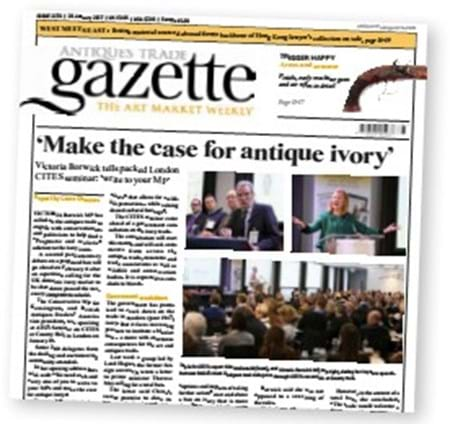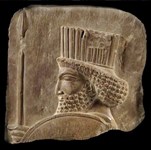In fact, it is legal in the UK at present to sell ivory, worked before 1947, although the government is considering a proposal to ban all worked ivory, regardless of date, with exceptions only for sales to and between museums, of musical instruments, items containing only small amounts of ivory, and items of significant historical, cultural, or artistic value.
As a long-term collector of antique works of art, including some containing ivory, I would respectfully question the logic of the Duke of Cambridge and his followers, by asking how the commercial emasculation of ancient craftsmanship saves the life of a single elephant?
And whether the government is prepared to compensate specialist collectors and dealers, who, having long acted in good faith, might now become victims of retrospective legislation?
Gavin Littaur
London NW4
Speaking out
MADAM – You summarise the report by ivory pressure group Two Million Tusks (ATG No 2314).
The antiques trade here and abroad faces an ever-increasing crisis over trade in ivory, yet this group has managed to find that less than 1% of lots sold by auctioneers include ivory.
They then state that 62% sold for less than £120. I understand their point is that the ivory trade isn’t worth a can of worms, and so why all the fuss if it were to be stopped for ever. I suspect that if all the objects examined had come from one tusk, there would still be plenty of ivory left over.
Cannot someone, some association, speak out loudly to protect the trade in antique ivory, and cannot ATG be seen to support a part of the trade on which it survives?
Daniel Fearon
Coombe Hill, New Malden
Editor responds: Antiques Trade Gazette has, as the paper of record and in the years since the threat to antique ivory materialised, consistently raised awareness of the ivory issue, including each development leading to the announcement in October of a consultation on the proposed ban.
This effort culminated in January this year with an ATG cross-industry conference in Westminster, at which expert views and advice were given.

Coverage of the ATG CITES seminar held in January.
As for the trade bodies, led by BAMF, we have reported on their efforts to negotiate with government – where they wished these efforts to be made public.
ATG will continue to encourage readers to take part in the consultation – right up to the consultation’s deadline at the end of December. We publish your letter as part of this effort to maintain awareness.
Deadline for response to the consultation is December 29, 2017
For online responses go to: gov.uk/government/consultations/banning-uk-sales-of-ivory
You can request a paper questionnaire by writing to: International Team – Ivory Consultation, 1E Nobel House, 17 Smith Square, London SW1P 3JR
Or ask for one by emailing ivoryconsultation@defra.gsi.gov.uk
There are 27 questions in the survey but answering all is not compulsory












